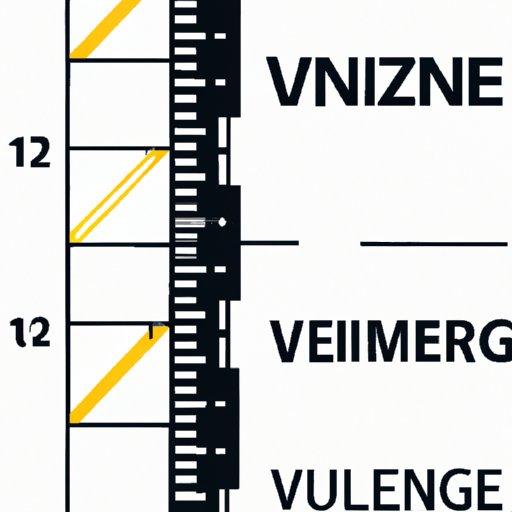Introduction
Measurement is defined as “the process or the result of determining the magnitude of a particular quantity, such as length, mass, temperature, or time” (Oxford Dictionary). In other words, measurements are the numerical values assigned to different physical or chemical properties. Measurements play an essential role in the field of science, enabling researchers to quantify and compare data accurately. This article will explore why measurements are so important in science.

The Role of Measurements in the Scientific Method
The scientific method is a widely used approach for conducting research that involves observation and experimentation. According to The Oxford Handbook of the History of Physics, this method includes the following steps: formulating hypotheses, collecting data, analyzing data, and drawing conclusions. Measurements are a key part of the scientific method, as they provide the data needed to test hypotheses and draw conclusions. For example, if a researcher wants to test the hypothesis that the boiling point of water is 100°C, they would measure the temperature of the water at different points throughout the experiment to determine whether their hypothesis is correct.
Accurate measurements are essential for reliable results when using the scientific method. If measurements are not precise enough, it can lead to false conclusions. As stated by Science Magazine, “If your measurements are wrong, then everything else you do is wrong.” Therefore, scientists must take great care to make precise and accurate measurements when conducting experiments.

Precision and Accuracy of Measurements
The precision and accuracy of measurements are essential factors to consider when making measurements in science. Precision refers to how close multiple measurements of the same quantity are to each other. Accuracy, on the other hand, is a measure of how close a measurement is to the true value of the quantity being measured. When making measurements in science, it is important to strive for both precision and accuracy.
There are various types of measurements commonly used in science. These include scalar measurements (which measure the magnitude of a quantity) and vector measurements (which measure both the magnitude and direction of a quantity). Other types of measurements include force, pressure, temperature, electrical current, and volume.
Measuring to Enable Comparison
Measurements are also used to enable comparison between different objects or processes. For instance, measurements can be used to compare the strength of different materials, or to compare the efficiency of different methods of energy production. By assigning numerical values to different properties, scientists can more easily observe how these properties differ from one another.
Tools and Technologies Used to Make Precise Measurements
In order to make precise measurements, scientists use a variety of tools and technologies. These include calipers, meters, thermometers, spectrophotometers, and many more. Each of these tools is designed to measure a specific type of property, and can provide extremely precise measurements. For example, a caliper can measure the thickness of an object with an accuracy of 0.01 millimeters.
Implications of Inaccurate Measurements
Inaccurate measurements can have serious implications in scientific research. For instance, if a researcher makes an inaccurate measurement, it could lead to false conclusions about the results of an experiment. Furthermore, inaccurate measurements can lead to faulty products or incorrect medical diagnoses, which can cause harm to people or damage to the environment. Therefore, it is essential for scientists to strive for accuracy when making measurements.
Conclusion
Measurements are essential for conducting reliable scientific experiments. They allow researchers to quantify and compare data accurately, test hypotheses, and draw valid conclusions. Accurate measurements are also necessary to ensure that products and medical diagnoses are safe and effective. For these reasons, it is important for scientists to make precise and accurate measurements when conducting experiments.
(Note: Is this article not meeting your expectations? Do you have knowledge or insights to share? Unlock new opportunities and expand your reach by joining our authors team. Click Registration to join us and share your expertise with our readers.)
